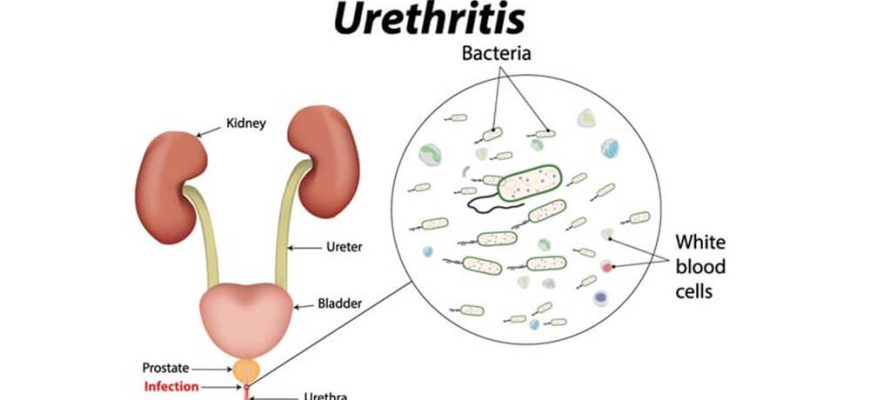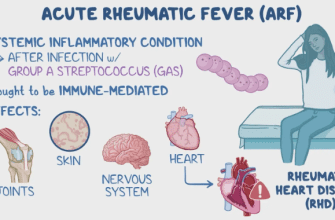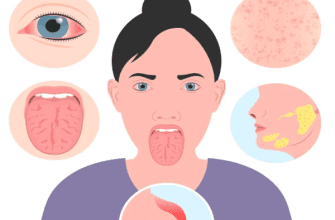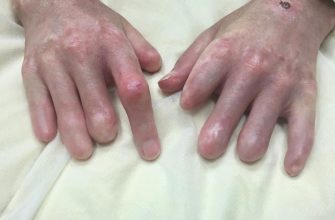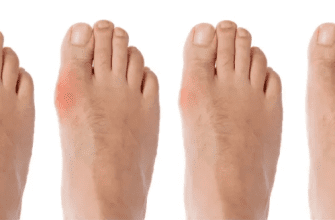Urethritis is the inflammation of the urethra, the tube that carries urine from the bladder to the outside of the body. It can result from various infections or irritants and can affect both men and women, although the causes may differ between sexes.
Contents
Etiology and Causes
Infectious Causes:
- Sexually Transmitted Infections (STIs):
- Gonorrhea: Caused by the bacterium Neisseria gonorrhoeae.
- Chlamydia: Caused by the bacterium Chlamydia trachomatis.
- Herpes Simplex Virus: Can cause urethritis, particularly in men.
- Non-STI Infections:
- Ureaplasma and Mycoplasma: Bacterial infections that can lead to urethritis.
- Trichomoniasis: Caused by the parasite Trichomonas vaginalis.
- Bacterial Vaginosis: In women, changes in vaginal flora can lead to urethral inflammation.
Non-Infectious Causes:
- Chemical Irritants: Detergents, soaps, or spermicide can irritate the urethra.
- Trauma: Physical injury to the urethra from activities like vigorous sexual intercourse or catheterization.
- Urinary Tract Procedures: Such as cystoscopy or catheter insertion.
Risks
- Sexual Activity: Engaging in unprotected sex increases the risk of STIs, which can lead to urethritis.
- Multiple Sexual Partners: Increases exposure to pathogens that cause STIs.
- History of Urethritis: Prior episodes may predispose individuals to future occurrences.
- Poor Hygiene: Can increase susceptibility to non-specific irritative urethritis.
Symptoms
- Burning Sensation: Especially during urination.
- Frequent Urination: Increased urgency or frequency.
- Discharge: Unusual discharge from the urethra (may be pus-like or clear).
- Itching or Irritation: In the urethral area.
- Pain: Discomfort in the lower abdomen or pelvic area.
Diagnosis
- Medical History: Assessment of symptoms, sexual history, and any potential exposures to STIs.
- Physical Examination: May include examination for discharges and signs of inflammation.
- Laboratory Tests:
- Urinalysis: To detect infection or inflammatory markers.
- Nucleic Acid Amplification Tests (NAATs): For identifying pathogens, especially STIs.
- Culture Tests: If a bacterial infection is suspected.
Treatment
- Antibiotics: Prescribed for bacterial urethritis based on the identified pathogen. Common antibiotics include azithromycin and doxycycline for chlamydia, or ceftriaxone for gonorrhea.
- Antiviral Medications: For viral causes like herpes simplex.
- Symptomatic Relief: Pain relievers and warm baths can help alleviate discomfort.
Prevention
- Safe Sex Practices: Consistent use of condoms can reduce the risk of STIs.
- Regular STI Screening: Particularly important for sexually active individuals with multiple partners.
- Good Hygiene Practices: Proper cleaning of the genital area can help prevent irritative urethritis.
- Limit Use of Irritants: Avoid soaps or products that can irritate the urethra.
Complications
- Recurrent Infections: Failure to treat the underlying cause can lead to recurring symptoms.
- Spread of Infection: Untreated urethritis can potentially lead to complications such as cystitis (bladder infection) or pyelonephritis (kidney infection).
- Urethral Stricture: Scarring of the urethra due to inflammation can lead to narrowing and obstructive symptoms.
- Infertility: Associated with untreated STIs that can lead to complications in reproductive health.
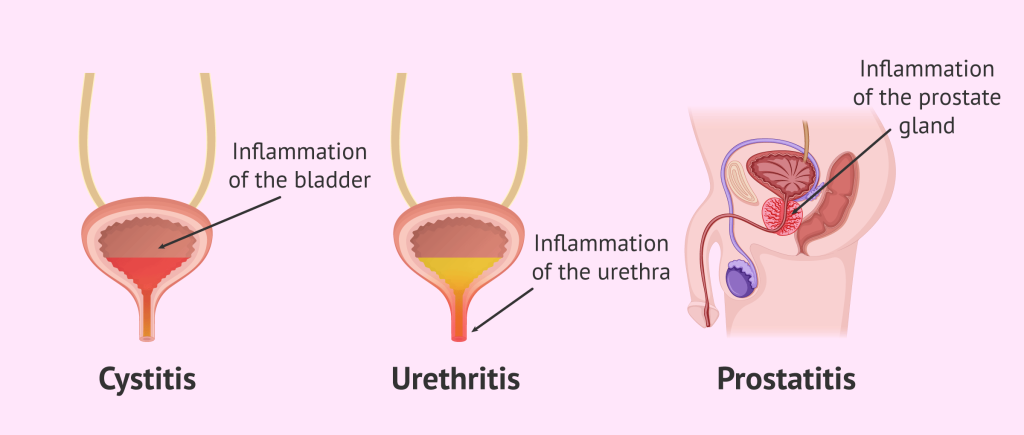
How to Relieve Urethritis Pain in 1 Day: Emergency Relief
1. Drink More Water
- Why: Flushes out bacteria and reduces irritation.
- How: 2–2.5 liters daily.
2. Warm Compress
- Why: Eases muscle spasms and pain.
- How: Apply to lower abdomen for 15–20 mins (no fever!).
3. Chamomile Tea or Cranberry Juice
- Why: Chamomile is a natural antiseptic, cranberries fight infection.
- How: 1 tbsp chamomile per cup of hot water (3x/day) or unsweetened juice.
4. Avoid Irritating Foods
- Avoid: Spicy, salty foods, alcohol, coffee.
- Why: They worsen inflammation.
5. Medications (Emergency Only)
- Painkiller: Ibuprofen (1 tablet if severe pain).
- Antispasmodic: No-shpa (1–2 tablets for cramps).
Note: These are temporary fixes. If pain persists — see a doctor immediately!
